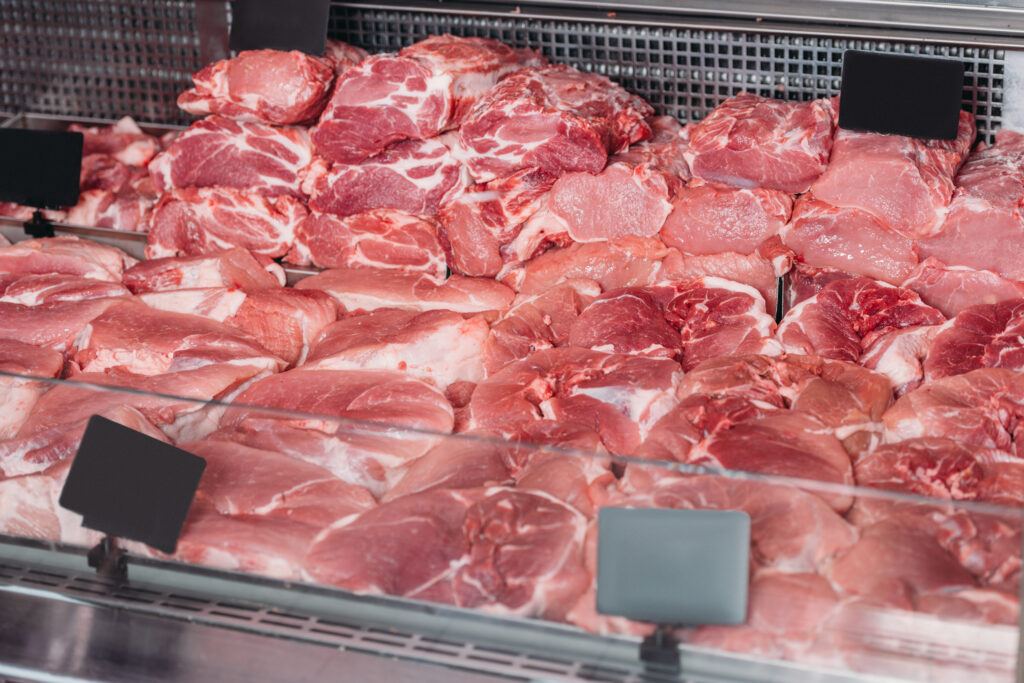The food industry is slowly moving away from chemical preservatives, like nitrites in meats, due to health concerns. This has prompted researchers in Spain and the US to explore yeast and nitric oxide (NO), respectively, as natural preservatives to extend meat shelf life.
In 2015, the World Health Organization (WHO) classified processed meat as carcinogenic due to nitrites forming cancer-causing chemicals during curing. The European Union (EU) recently tightened regulations on nitrites and nitrates in foods, including meats, fish and cheese. Studies also link nitrite additives to an increased risk of type 2 diabetes, prompting the search for safer curing methods.
Scientists in Spain found a safer nitrite alternative in yeast, specifically Debaryomyces hansenii LRC2, found naturally in pork loin. This yeast could help reduce the use of nitrites and salt while preserving meat quality.
Related: Olli Salumeria Pioneers First Preservative-Free Salami in North America
The Study in Spain
A decade ago, Professor José Ramos and his team at the University of Cordoba began researching yeast in pork loin. They isolated yeasts that developed during the meat’s maturation. Their findings revealed these microorganisms influence the final product’s characteristics.
The team tested the yeast’s preservative capabilities by conducting a volatile compound inhibition assay. The results showed mold inhibition rates exceeding 75 percent in all conditions. This finding supports the yeast’s potential as a preservative in cured meats. The yeast’s volatile compounds contribute to the pork loin’s aroma and inhibit harmful fungi.
To verify the yeast’s effectiveness, researchers inoculated Iberian pork loins from Navalpedroche, a renowned meat producer in southern Spain. They followed International Organization for Standardization (ISO) standards for food quality and microbiology, but the taste did not fully meet market expectations. Specialized panelists and regular consumers noted a loss of sensory quality despite acknowledging the product was good.
Taste remains a critical factor for meat products. Researchers observed that while they preserved the pork loin’s characteristics and extended its shelf life, improving taste is essential. The team is now working with other yeast strains to enhance the flavor while maintaining food safety and extending meat shelf life.
The Study in the US
Texas A&M University researchers are developing a method to cure meats without nitrites, funded by the US Department of Agriculture’s (USDA) Agriculture and Food Research Initiative (AFRI). Many processors currently use vegetable powder from celery, a natural nitrite source, to cure meats. However, these products often have a detectable vegetable taste, making them less favorable than traditionally cured meats.
Dr. Wes Osburn, associate professor of Meat Science at Texas A&M, is exploring a method to generate NO and residual nitrite without adding natural or synthetic nitrites. His method involves adding L-arginine to meats, which activates the nitric oxide synthase (NOS) enzyme, converting L-arginine to NO and L-citrulline. NO gives cured meats their pink color and forms nitrite, acting as an antioxidant and antimicrobial to enhance meat shelf life.
The feasibility of the process must be validated across various meat products under different conditions. Dr. Osburn is developing a prototype amino acid-cured ham to undergo manufacturing analysis for color, sensory factors, texture and shelf life. Variables like arginine concentration, meat pH, temperature and time will be adjusted to optimize NO generation.
The research is in its second phase and will soon move to pilot plant production. This innovative approach could revolutionize meat curing, ensuring safer and longer-lasting meat products.
Scientists in Spain and the US are pioneering alternatives to chemical preservatives in meat. These innovations could revolutionize how the meat industry extends meat shelf life and ensures food safety. As the food industry evolves, such natural preservatives will likely become more prominent, ensuring healthier and safer meat products for consumers.
If you want your company to be featured on Xtalks.com, please email [email protected].












Join or login to leave a comment
JOIN LOGIN